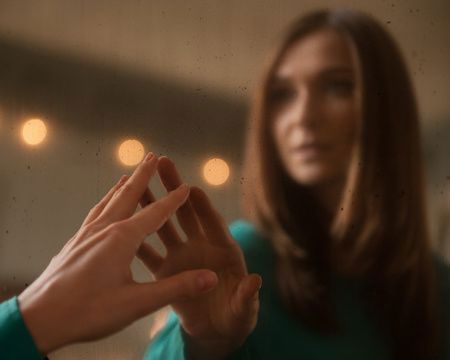
3 | 5477 views
"To love oneself is the beginning of a lifelong romance." said Oscar Wilde. While some individuals boast an oversized ego, others struggle immensely to accept themselves as they are. It's easier for them to love their children, their partners, their families, and their friends. These individuals tend to highlight their own flaws and imperfections rather than recognizing their own worth. Can one learn to love oneself? How can one succeed in self-acceptance? Must one love oneself to be loved in return? These are just a few questions we'll attempt to address in this new article.
Is it necessary to learn to love oneself?
Yes, because one's self-esteem reflects outwardly. If we accept ourselves as we are, we positively influence those around us. What others may think of us becomes secondary because self-esteem acts as a shield. Indeed, with a modicum of self-love, we learn to better handle criticism and not take everything to heart. Finding a partner and forming relationships becomes easier when we are confident. Self-love enriches life, bringing vibrancy. The mind is freed from negative thoughts. We confront problems and learn to manage stressful situations. Why do some struggle to love themselves? Media, society, as well as our own journey and failures, instill a sense of inadequacy, leading to constant comparison with others. Great vulnerability, heightened sensitivity, and mental health issues like depression can lead to self-loathing, plunging some into an emotional abyss from which they struggle to emerge. They question their own worth and sometimes feel undeserving of love...
How can one learn to love oneself?
Here are a few exercises to integrate into daily life. The key principle is that self-love originates from within and is not triggered by external influences.
Treat yourself each day, at every moment, as a friend. Focus on your strengths and weaknesses while remaining realistic. Provide yourself with feedback, as you would for a friend. Get to know yourself better. What defines you? What are your interests? Remind yourself each day how great you are and what you particularly appreciate about your personality. What do you possess that others don't?... Reward yourself more often with small gifts and gestures when you accomplish something. Seek out the positive in things you find unbearable. Who would you be without these qualities? Others admire you for them and would gladly trade places with you. Prioritize your needs. Dedicate enough time to this and grant yourself a break. Regularly congratulate yourself. Did you demonstrate discipline and commitment today? Did you help others, work harder than necessary, etc.? Say to yourself: "I did well." Practice self-deprecation. Smile at yourself: laughter has therapeutic virtues. Don't take yourself too seriously. Be grateful for every enjoyable moment you experience. Don't compare yourself to others. You are a unique and original individual!
Must one love oneself to be loved in return?
This is a remark that singles have heard at least once. Indeed, according to common wisdom, one should learn to love oneself in order to access the love of others... A recommendation that takes on the tone of a command for those seeking love. While there may be some truth to this truism thrown around haphazardly, it would be better to integrate the idea that a romantic relationship can help someone with self-esteem issues evolve! Moreover, we don't need to have absolutely all our personal problems sorted out before entering into a relationship, according to Myriam Bidaud, a coach and couple therapist. And she adds: "However, if there's no minimum level of self-awareness, we give the other person too much power, which they can exploit to manipulate us," she warns. But it's undeniable that committing to a relationship despite self-esteem issues can be beneficial for both parties. It's a kind of mutual growth project. "Here, the other person holds up a mirror to us, whose reflection can be more structuring or shows us things we didn't see in ourselves before, blinded by our complexes. Generally, that's how we learn to love ourselves better, through the eyes of the other," the expert reminds us.
Photo: Below © stock.adobe.com
Editor, 11.04.2024